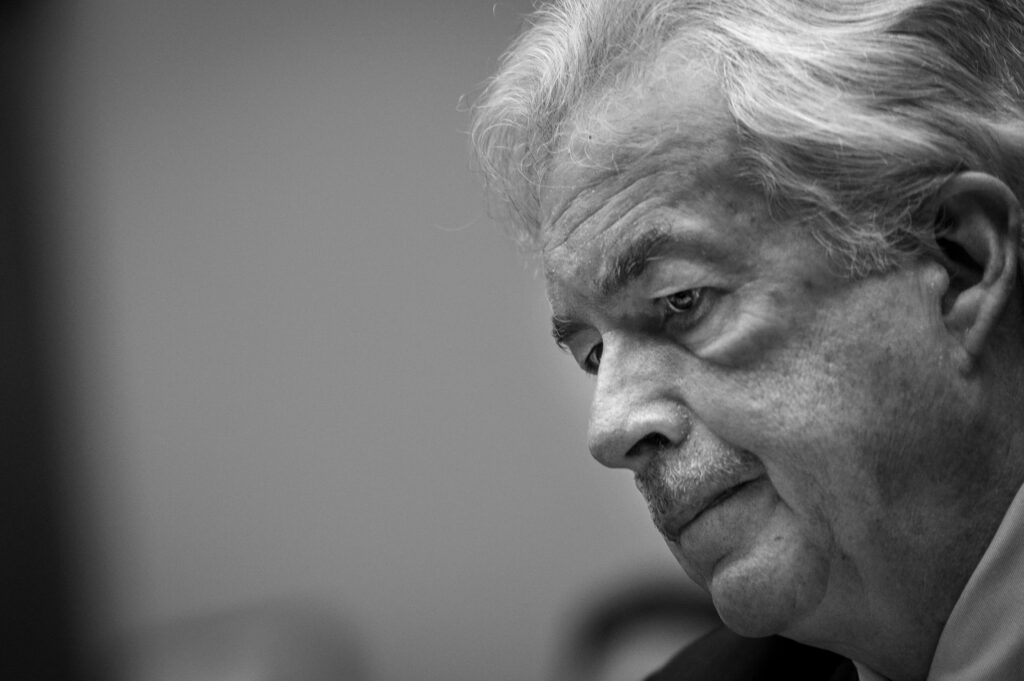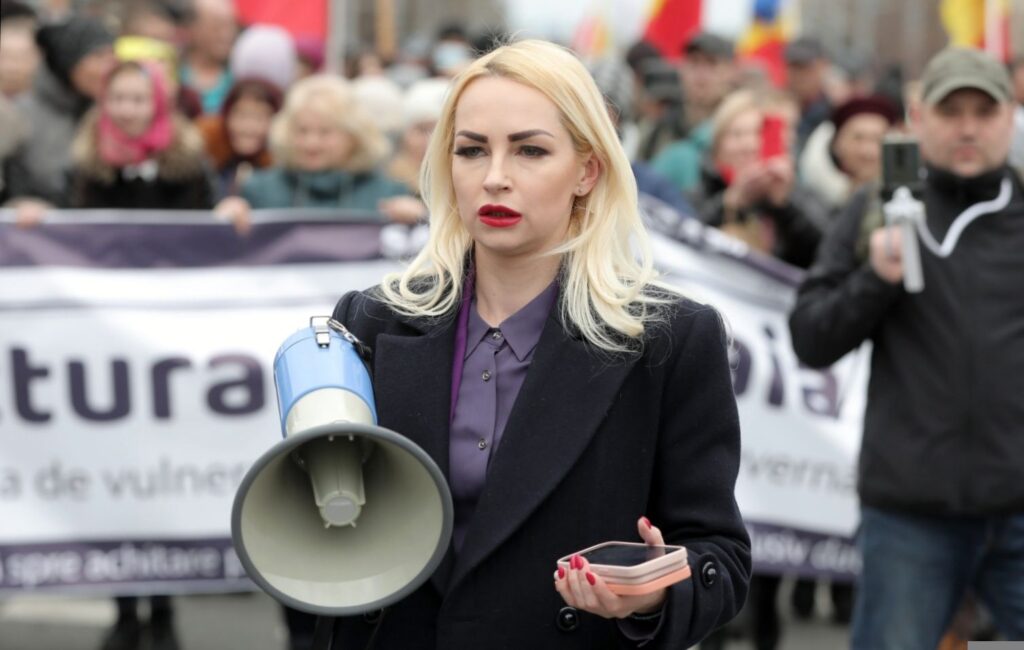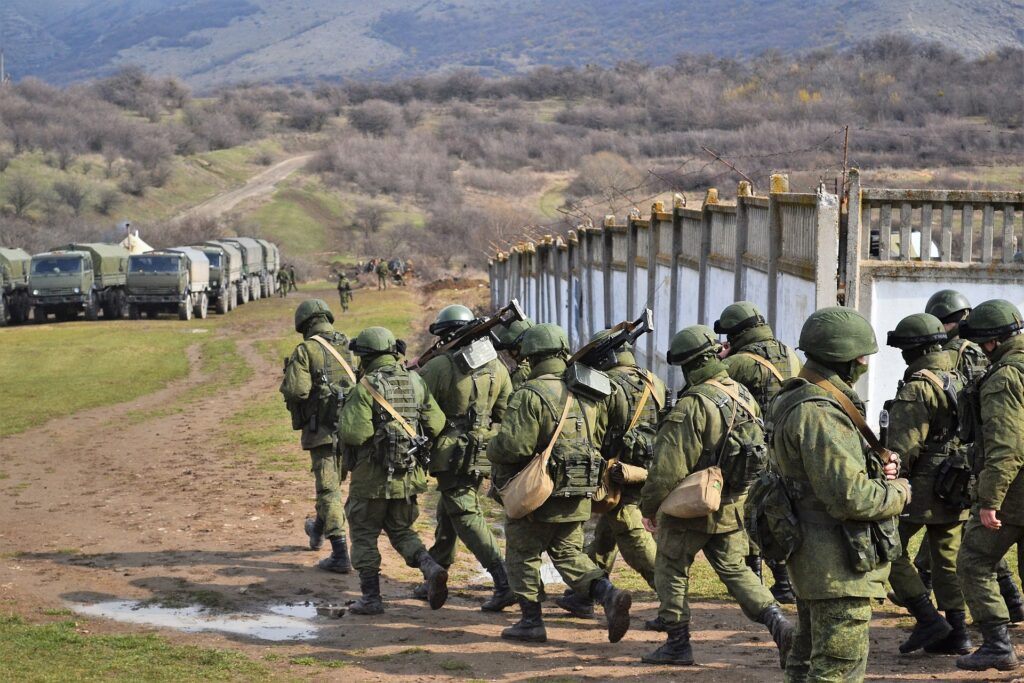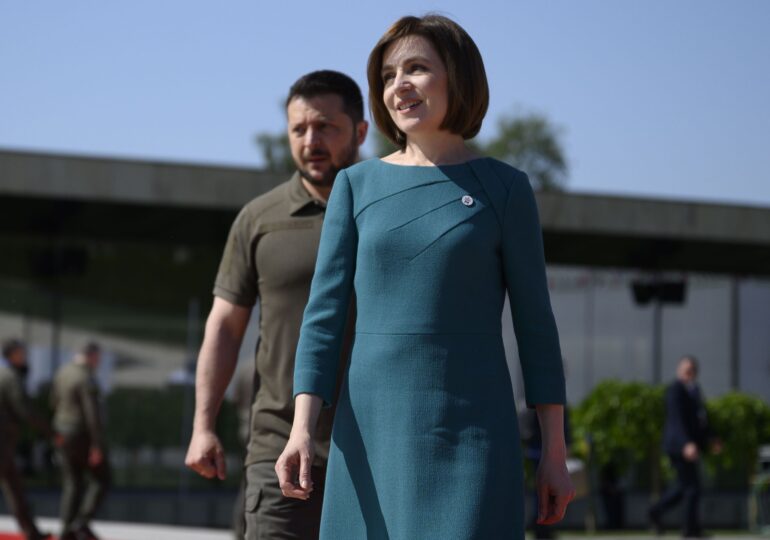At the end of February 2023, the heads of the Romanian Intelligence Service made an emergency trip to Washington where they met with William Burns, Director of the CIA.
The expedition was linked to an operation by Russian agents aimed at destabilising the government in Chisinau and ousting Moldova’s President Maia Sandu.
„These days, the Director of the Romanian Intelligence Service, Mr Eduard Hellvig, accompanied by the First Deputy Director of the SRI, General Razvan Ionescu, were on a working visit to the United States of America”, announced an official SRI press release
"The Director and First Deputy Director of the SRI had a series of meetings with American intelligence officials - Ms. Avril Haines, Director of the US National Intelligence Community, and William J. Burns, Director of the CIA. The main topics on the agenda of the talks were the regional and global security situation in the current context, as well as the dynamics of the operational situation," the statement added.
Although terse, the reference to the "regional security situation" and the "dynamics of the operational situation" suggests that the discussions were related to the serious events in Moldova that were unfolding at the time, the threat from Russia and the Kremlin's attempt to destabilise the regime in Chisinau.

The secret partnership that saved Moldova
"Violent actions, disguised as protests by the so-called opposition, would force a change of power in Chisinau. The documents received from our Ukrainian partners show a good documentation of the locations and logistical aspects for the organization of these subversive activities", said Maia Sandu, in a public speech in mid-February 2023.
Then the situation was extremely tense. The alarm was raised by Volodimir Zelenski, the President of Ukraine, who said at the time that he had been informed by his security services of extensive preparations by Russian representatives to destabilise Moldova.
Two years after Vladimir Putin's armies invaded Ukraine, one of Kyiv's strengths has been the decade-long collaboration between local intelligence and the CIA.
Liaison between Ukrainian representatives and US intelligence officers has started timidly, according to an article in the New York Times.
On the night of 24 February 2014, Valentin Nalivaicenko, after President Viktor Yanukovych fled following the victory of protests in Kyiv, was appointed head of spies in Ukraine.
Arriving at the agency's headquarters, the article says, he found a pile of files burning in the courtyard and a network of computers infected with a Russian virus. The former head of the service had fled to Russia with Yanukovych, along with many employees working for the Kremlin.
The only idea he could think of at that moment was to pick up the phone and call the CIA and MI6 in the UK.
Russia's spy army
However Western intelligence has been reluctant to develop a relationship with Ukraine. Frequent changes of government and the country's swinging back and forth between Russia and the West have created a volatile situation that was not conducive to building cooperation, US journalists report.
The first time distrust began to spread was on 17 July 2014. Airliner MH 17 with 298 passengers on board, was shot down by a Russian missile.
Then, within a few hours, Ukrainian intelligence managed to get hold of several audio recordings, which proved the involvement of the Russian military and Donbas separatists in the downing of the Boeing 777. All the evidence gathered was sent as quickly as possible to the CIA for corroboration and verification, the New York Times article said.
This was the first step in a decade-long partnership that has severely damaged Russia's intelligence power and influence.

The CIA has invested in equipping and training Ukrainian agents, and in return, they have given the Americans the most powerful spy army operating on Russian soil at all levels, with access to most of the Kremlin's secrets - military, political and economic.
Tourists from Chisinau
"The head of the CIA department overseeing operations against Russia held a secret meeting in The Hague. There, representatives of the American agency, Britain's MI6, the Ukrainian spy service HUR, the Dutch service (a key ally) and other agencies agreed to begin sharing more of their intelligence on Russia," the New York Times article said.
"The result was a secret coalition against Russia - and the Ukrainians were vital members of it," the US journalists note.
There are many indications that the rescue of Moldova from Russia's furious attack in February 2023 is linked to this coalition, and the information gathered by Ukraine delivered to Moldova and Romania, helped thwart the operation aimed at changing the political regime in Chisinau.
Marina Tauber's appearance on RTV in Romania on 28 February, after she led a series of protests in Chisinau, being associated with Ilan Shor, the billionaire who is now a refugee in Moscow, showed how elaborate the plan to oust Maia Sandu was, but also how strong was the collaboration between intelligence agencies in Ukraine, Moldova and Romania to block the Kremlin's actions.

"On February 27, 2023, as part of counter-intelligence measures aimed at detecting risks to national security, the Intelligence and Security Service identified the presence on the territory of the Republic of Moldova of two foreign citizens, connected to certain subversive centres outside the country", reads in SIS Moldova press release.
"They were engaged in data and information gathering activities to implement a plan to destabilize the internal situation in the country, with the provocation of a violent change of the constitutional order of the Republic of Moldova. It was also established that foreign citizens, disguised as simple tourists, were coordinated from the shadows by a group of people affiliated to a conspiratorial network of experts in political technologies and social engineering from abroad," the Chisinau intelligence service statement added.
In Crimea, the plan was successful
During that period there were dozens of such official reports, statements and messages in which both political leaders in Chisinau and Bucharest, as well as the intelligence services, reacted to compromise Russia's attack on Moldova.

Two years after the start of the invasion, it is much clearer that the shadow war was just as harsh and relentless as the war on the front, and Putin targeted Moldova in the same way he targeted Ukraine, the only difference being that he decided to act chronologically, attacking the nearest target first.
"A few days after the fall of the pro-Russian regime in Kyiv in February 2014, several dozen men armed to the teeth appeared outside the local parliament in Crimea, storming inside. They looked and acted like professionals, wearing balaclavas and uniforms identical to those of Russian special forces. The only thing missing was the insignia, which had been removed. The troops disarmed the parliament guards and took up positions inside the plenary hall," describes journalist Simon Shuster in his book Showman, how the Crimean Peninsula was occupied by Russia.

